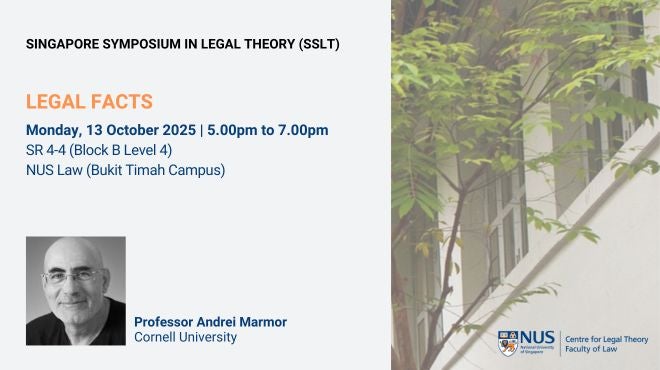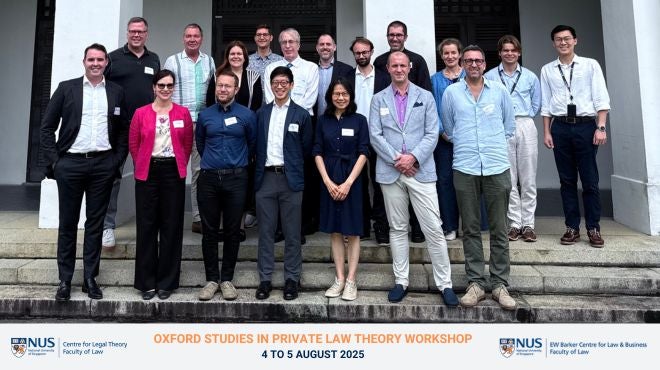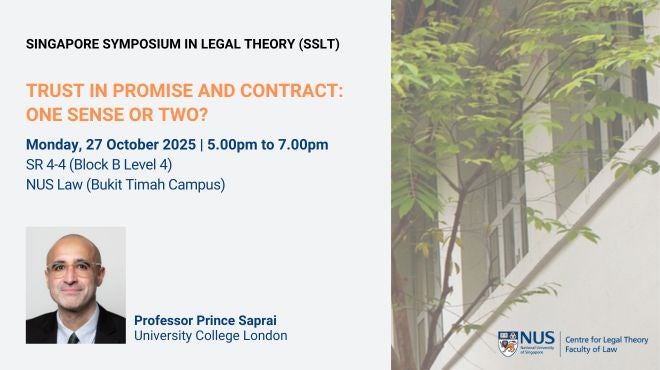Highlights
[UPCOMING] The Singapore Symposium in Legal Theory AY2025: “Legal Facts” by Professor Andrei Marmor, Cornell Law School
Hans Kelsen famously maintained that the law is a scheme of interpretation; legal facts are entirely in our minds, not in the world. Since legal facts are normative, Kelsen thought, they cannot be inferred from worldly facts alone; ultimately, the existence of legal facts depends on the presupposition of the relevant basic norm. There is something attractive about Kelsen’s idea that the law is, entirely, a scheme of interpretation. Actions and events happen in the world; some of them have legal significance.


CLT is delighted to host the Oxford Studies in Private Law Theory Workshop at NUS Bukit Timah Campus from 4 to 5 August 2025. The Oxford Studies in Private Law Theory is a biennial forum for some of the best new work in private law theory by scholars from around the world. The series publishes exceptional work exploring the full range of private law domains and doctrines—including contract, property, tort, and fiduciary law, as well as equity, unjust enrichment, and remedies—and employing diverse methodological approaches to individual areas of private law as well as to private law in general.
In Contract as Promise, Charles Fried forged a tight connection between contract and promise. Since the publication of that book, much ink has been spilt by contract theorists on the issue of whether key contractual doctrines converge or diverge with the rules that govern promises outside the law. This has led to what is known in the literature as the ‘contract and promise debate’. With one very important exception, very little attention has been given to another claim Fried made in that book, which was that contracts, like promises, invoke trust.


Professor Andrew Halpin's paper looked at the conundrum faced when we seek a fuller understanding of individual liberty. The evident advantages of a single individual possessing liberty cannot be simply transferred to a greater number of beneficiaries, and the conclusion that in order to extend the advantages of individual liberty to all, something other than liberty is required.


